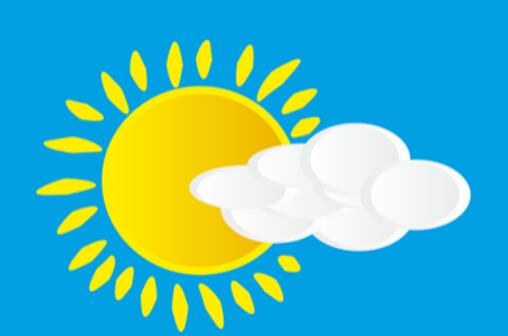
Source of pictures: Pixabay.com
It took Daniel a long time to ask mom’s permission to go camping with his classmate in the forest park next weekend. He was excitedly waiting for that weekend. But it was raining these days and it’s going to rain for the next days. So the camping plan may have to be canceled. Daniel was talking to himself sulkily in his room until his mother asked him out for meal.
He sat at the kitchen table with a sad face. Mom comforted him, "It’s so hot the other day that there would be a lot of bugs when you go camping. Now the rain lowers the temperature. It might be better to go camping when it doesn’t rain."
Daniel said sadly, "My classmate will travel to Hainan with his parents after the next weekend."
Mom didn’t know how to answer it. Daniel continued, "I will never trust the weather forecast any more. It’s a liar."
Mom comforted him patiently, "The weather forecast is not only to blame for the rain. It’s innocent. You know how people predict the weather?"
Daniel shook his head, waiting for his mom to explain.
"You’ve seen the weather forecast, haven’t you? All our weather forecasts today use a numerical model to make a prediction. At first, initial parameters, such as satellite cloud pictures, surface temperature and humidity, wind level and previous climate records of the region, should to be obtained from current meteorological observations. Then these initial parameters will be substituted into the equations of fluid mechanics and thermodynamics by mainframe computers for numerical calculation, and some solutions are then obtained. At last, professionals can predict the weather according to their experience and the obtained solutions. Have you ever heard of the butterfly effect?'
Daniel shook his head again.
Mom explained patiently, "The term 'butterfly effect' was proposed by the American meteorologist Edward. It says that the flapping of a butterfly’s wings in Amazon can cause a tornado in Texas two weeks later. This is not to say how powerful a butterfly flaps its wings, but the atmospheric system is difficult to predict. Even small changes can result in big effects in a limited amount of time. That is to say, if the initial value changes slightly, the final result calculated by the computer may be greatly different. The atmospheric system is also known as the chaotic system. A popular folk song describes the characteristics of the chaotic system. It goes like this:
For want of a nail,
the shoe was lost.
For want of a shoe, the horse was lost,
For want of a horse the rider was lost,
For want of a rider the battle was lost,
For want of a battle the Kingdom was lost.
On the face of it, the loss of a nail has nothing to do with the demise of a Kingdom. But sometimes, it’s all for the want of a nail. So it’s hard to predict the chaotic system, as you don’t know what will happen if there’s a small change in the initial conditions. As technology advances, more and more weather satellites have been launched, and the accuracy of short-term weather forecast in most areas now has reached over 80%. The short term I am talking about here refers to within three days. Therefore, the accuracy of nine-day forecasts and over 15-day forecasts will be greatly reduced. So it’s best to arrange activities based on short-term weather forecasts."
After listening to mom’s explanation, Daniel realized that this was not the fault of the weather forecast, but still felt it’s a pity that they can’t go camping.
Mom suggested, "You can camp at home instead of in the forest park, as long as you stay in the tent all day."
Hearing such a childish idea, Daniel resignedly shoveled a piece of spare rib into his mouth.
Author: Huang Jing

















 京公网安备11010502039775号
京公网安备11010502039775号





